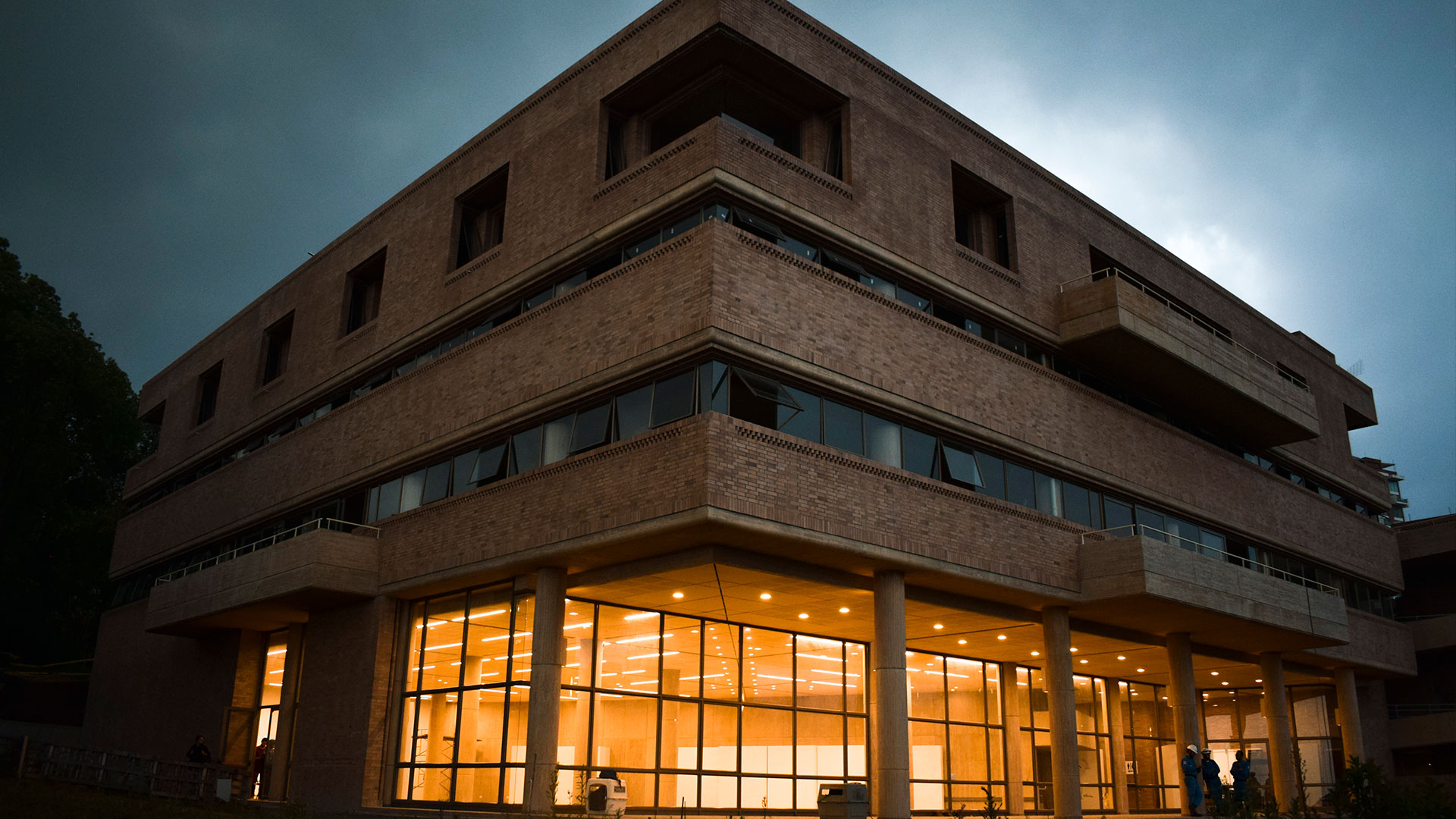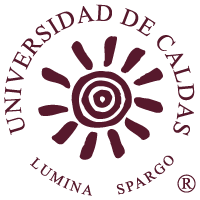| dc.contributor.author | Sullivan, Arthur | spa |
| dc.date.accessioned | 2014-06-20 00:00:00 | |
| dc.date.available | 2014-06-20 00:00:00 | |
| dc.date.issued | 2014-06-20 | |
| dc.identifier.issn | 0124-6127 | |
| dc.identifier.uri | https://revistasojs.ucaldas.edu.co/index.php/discusionesfilosoficas/article/view/754 | |
| dc.description.abstract | Lo que llamaré ‘la objeción lógica irregular’ es una línea de ataque en contra del principio común y convincente  de que nuestra justificación de las verdades lógicas se fundamenta en la comprensión de sus conceptos  constituyentes. Esta objeción busca socavar la posibilidad de cualquier conexión constitutiva profunda, en la  epistemología de la lógica (y también más allá), entre la comprensión y la justificación. Mi tesis es que, si bien la objeción lógica irregular no llega a demostrar que este principio tradicional debe ser rechazado, no obstante,  sirve para reforzar algunos refinamientos importantes. | spa |
| dc.description.abstract | What I will call ‘the deviant logician objection’ is one line of attack against the common and compelling tenet  that our justification for logical truths is grounded in our understanding of their constituent concepts. This  objection seeks to undermine the possibility of any deep constitutive connection, in the epistemology of logic  (and also beyond), between understanding and justification. My thesis is that while the deviant logician  objection falls short of proving that this traditional tenet must be rejected, nonetheless it serves to bolster some important refinements. | eng |
| dc.format.mimetype | application/pdf | eng |
| dc.language.iso | eng | eng |
| dc.publisher | Universidad de Caldas | spa |
| dc.rights | Derechos de autor 2014 Discusiones Filosóficas | eng |
| dc.rights.uri | https://creativecommons.org/licenses/by/4.0/ | eng |
| dc.source | https://revistasojs.ucaldas.edu.co/index.php/discusionesfilosoficas/article/view/754 | eng |
| dc.subject | Conocimiento a priori | eng |
| dc.subject | epistemología de la lógica | eng |
| dc.subject | Timothy Williamson | eng |
| dc.subject | A priori knowledge | spa |
| dc.subject | epistemology of logic | spa |
| dc.subject | Timothy Williamson | spa |
| dc.title | Logical deviance and the constitutive a priori | spa |
| dc.type | Artículo de revista | spa |
| dc.type | Sección Artículos | spa |
| dc.type | Journal Article | eng |
| dc.identifier.eissn | 2462-9596 | |
| dc.relation.citationendpage | 85 | |
| dc.relation.citationissue | 24 | spa |
| dc.relation.citationstartpage | 67 | |
| dc.relation.citationvolume | 15 | spa |
| dc.relation.ispartofjournal | Discusiones Filosóficas | spa |
| dc.relation.references | Beall, J.C. and Greg Restall. Logical Pluralism. Oxford: Oxford University Press, 2006. Print. | eng |
| dc.relation.references | Berger, Alan, ed. Kripke on the Incoherency of Adopting a Logic. Cambridge: Cambridge University Press, 2011. Print. | eng |
| dc.relation.references | Boghossian, Paul. “Analyticity”. Companion to the Philosophy of Language. Eds. Hale, Bob and Crispin Wright. London: Blackwell Press, 1999. Print. | eng |
| dc.relation.references | ---. “Knowledge of Logic”. New Essays on the A Priori. Eds. Boghossian, Paul and Christopher Peacocke. Oxford: Oxford University Press, 2001. Print. | eng |
| dc.relation.references | ---. “Williamson on the A Priori and the Analytic”. Philosophy & Phenomenological Research. 2010: 488-97. Print. | eng |
| dc.relation.references | Boghossian, Paul and Christopher Peacocke, Eds. New Essays on the A Priori. Oxford: Oxford University Press, 2001. Print. | eng |
| dc.relation.references | BonJour, Laurence. In Defense of Pure Reason. Cambridge: Cambridge University Press, 1997. Print. | eng |
| dc.relation.references | Carnap, Rudolf. “Empiricism, Semantics, Ontology”. Revue Internationale de Philosophie. 1951: 20-40. Print. | eng |
| dc.relation.references | Devitt, Michael. “No Place for the a priori”. What Place for the A Priori? Eds. Schaffer, Michael and Michael Veber. Chicago: Open Court, 2011. Print. | eng |
| dc.relation.references | Flanagan, Brian. “Analyticity and the Deviant Logician”. Acta Analytica. 2013: 345-52. Print. | eng |
| dc.relation.references | Friedman, Michael. Kant and the Exact Sciences. Cambridge: Harvard University Press, 1998. Print. | eng |
| dc.relation.references | ---. “Transcendental Philosophy and A Priori Knowledge: A Neo-Kantian Perspective”. Eds. Boghossian, Paul and Christopher Peacocke. New Essays on the A Priori. Oxford: Oxford University Press, 2001. Print. | eng |
| dc.relation.references | ---. “Einstein, Kant, and the A Priori”. Royal Institute of Philosophy Supplements. Oct. 2008: 95-112. Print. | eng |
| dc.relation.references | Haack, Susan. Deviant Logic. Cambridge: Cambridge University Press, 1974. Print. | eng |
| dc.relation.references | Horwich, Paul. “Stipulation, Meaning, and Apriority”. Eds. Boghossian, Paul and Christopher Peacocke. New Essays on the A Priori. Oxford: Oxford University Press, 2001. Print. | eng |
| dc.relation.references | ---. Reflections on Meaning. Oxford: Oxford University Press, 2006. Print. | eng |
| dc.relation.references | Pap, Arthur. The A Priori in Physical Theory. New York: King’s Crown Press, 1946. Print. | eng |
| dc.relation.references | Peacocke, Christopher. “The Programme of Moderate Rationalism”. Eds. Boghossian, Paul and Christopher Peacocke. New Essays on the A Priori. Oxford: Oxford University Press, 2001. Print. | eng |
| dc.relation.references | ---. The Realm of Reason. Oxford: Oxford University Press, 2006. Print. | eng |
| dc.relation.references | ---. “Understanding, Modality, Logical Operators”. Philosophy & Phenomenological Research. 2011: 472-80. Print. | eng |
| dc.relation.references | Quine, Willard van Orman. “Two Dogmas of Empiricism”. Philosophical Review. 1951: 20-43. Print. | eng |
| dc.relation.references | ---. Philosophy of Logic. Cambridge: Harvard University Press, 1970. Print. | eng |
| dc.relation.references | Railton, Peter. “Wittgenstein on the Normativity of Logic”. Eds. Boghossian, Paul and Christopher Peacocke. New Essays on the A Priori. Oxford: Oxford University Press, 2001. Print. | eng |
| dc.relation.references | ---. Facts, Values, and Norms. Cambridge University Press, 2003. Print. | eng |
| dc.relation.references | Reichenbach, Hans. The Theory of Relativity and A Priori Knowledge. Los Angeles: University of California Press, 1965. Print. | eng |
| dc.relation.references | Russell, Gillian. “Metaphysical Analyticity and the Epistemology of Logic”. Philosophical Studies. Forthcoming. | eng |
| dc.relation.references | Schaffer, Michael and Michael Veber, Eds. What Place for the A Priori? Chicago: Open Court, 2011. Print. | eng |
| dc.relation.references | Stump. David. “Defending Conventions as Functionally A Priori Knowledge”. Philosophy of Science. Dec. 2003: 1149-60. Print. | eng |
| dc.relation.references | ---. “A Reconsideration of the Status of Newton’s Laws”. What Place for the A Priori? Eds. Schaffer, Michael and Michael Veber. Chicago: Open Court, 2011. Print. | eng |
| dc.relation.references | Williamson, Timothy. “Conceptual Truth”. The Aristotelian Society. 2006 (Sup.): 1-41. Print. | eng |
| dc.relation.references | ---. The Philosophy of Philosophy. London: Blackwell Press, 2008. Print. | eng |
| dc.relation.references | ---. “Reply to Kornblith”. Analysis. 2009: 123-6. Print. | eng |
| dc.relation.references | ---. “Reply to Boghossian”. Philosophy & Phenomenological Research. 2011: 498-506. Print. | eng |
| dc.relation.references | Wittgenstein, Ludwig. Tractatus Logico-Philosophicus. London: Routledge, 1921. Print. | eng |
| dc.relation.references | ---. Philosophical Investigations. Oxford: Oxford: Blackwell, 1953. Print. | eng |
| dc.rights.accessrights | info:eu-repo/semantics/openAccess | eng |
| dc.title.translated | La irregularidad lógica y lo a priori constitutivo | eng |
| dc.type.coar | http://purl.org/coar/resource_type/c_6501 | eng |
| dc.type.content | Text | eng |
| dc.type.driver | info:eu-repo/semantics/article | eng |
| dc.type.version | info:eu-repo/semantics/publishedVersion | eng |
| dc.relation.citationedition | Núm. 24 , Año 2014 : Enero - Junio | spa |
| dc.relation.bitstream | https://revistasojs.ucaldas.edu.co/index.php/discusionesfilosoficas/article/download/754/677 | |
| dc.type.coarversion | http://purl.org/coar/version/c_970fb48d4fbd8a85 | eng |
| dc.rights.coar | http://purl.org/coar/access_right/c_abf2 | eng |





